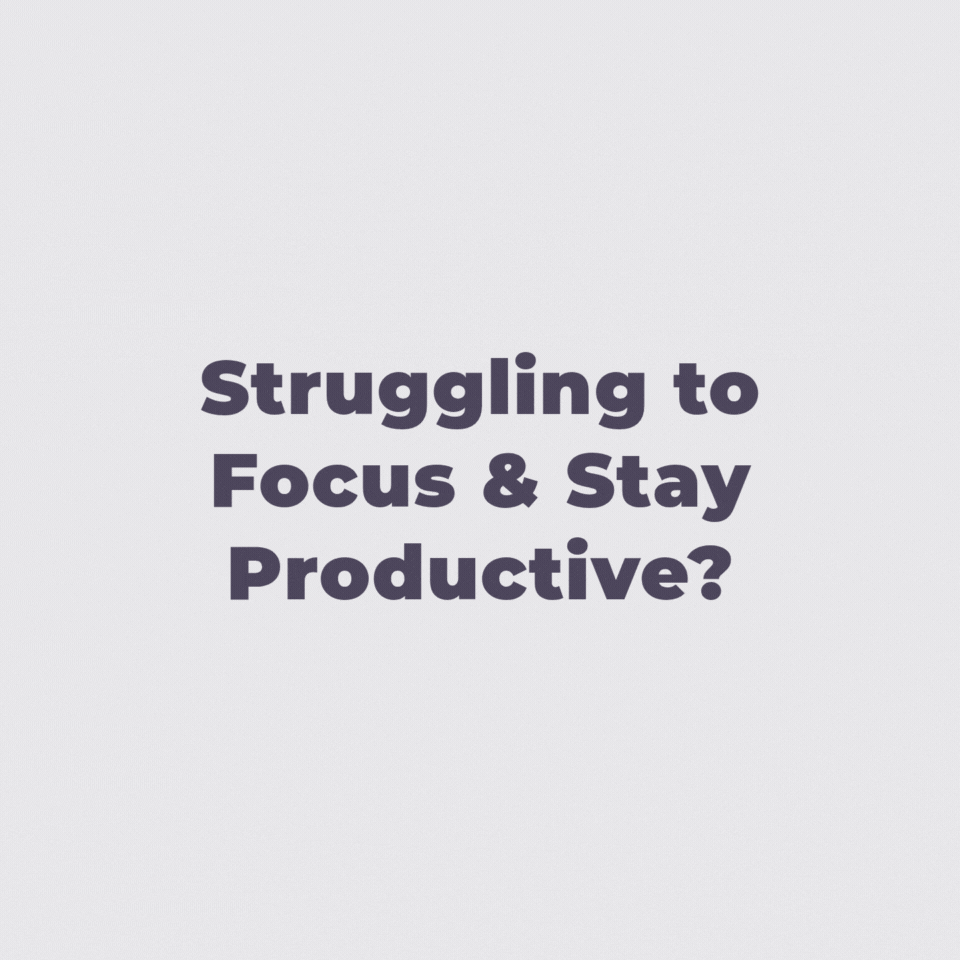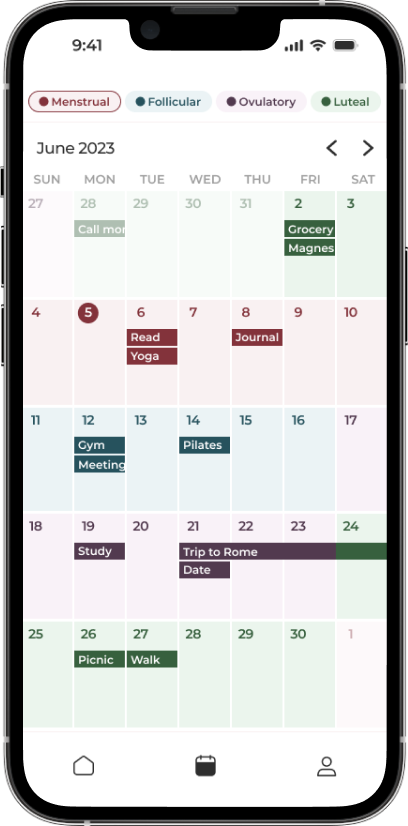10 Ways to Use ChatGPT for Personal Growth

Personal growth involves continuous learning, self-awareness, and improvement. It’s about striving to become the best version of yourself, whether through enhancing emotional intelligence, cultivating healthier habits, or improving your skills. The challenge many people face, however, is knowing where to start and how to keep progressing. This is where tools like ChatGPT can be invaluable. ChatGPT offers a way to personalize the process, providing prompts and reflections that help guide your growth.
1. Identifying Strengths and Weaknesses
One of the foundational steps in personal growth is understanding who you are at a deeper level. Knowing your strengths and weaknesses isn’t just important for self-improvement, but it’s essential for navigating both personal and professional life effectively. This self-awareness helps you recognize what you do well and where there’s room for improvement, which in turn guides your decision-making, relationship-building, and goal-setting.
When identifying your strengths, think about what tasks or activities come easily to you or areas where you consistently excel. These strengths may be related to skills, such as problem-solving, communication, or creativity, or even personal qualities like resilience, empathy, or determination. Recognizing these strengths allows you to build on them, contributing to your confidence and overall growth.
On the flip side, acknowledging your weaknesses can be just as important. Weaknesses don’t necessarily indicate areas of failure, but rather aspects of yourself that may need further development. Perhaps it’s an area where you lack experience, or it could be a tendency toward procrastination or poor time management. Identifying these weaknesses doesn’t mean accepting them as permanent flaws; instead, it’s an opportunity to work on them and turn them into strengths.
Example ChatGPT Prompts:
- “Help me identify my strengths by reflecting on my recent successes in [task or area].”
- “What are some common weaknesses that might hold someone back in [situation]? How can I work on them?”
- “Based on the challenges I’ve faced recently, what do you think my key areas of improvement might be?”
- “Can you suggest a few strategies for enhancing my strengths in [area]?”
- “What habits could I change to turn my weakness in [area] into a strength?”
2. Setting Meaningful Goals
Setting goals is a critical component of personal growth. Without clear, actionable goals, it’s easy to drift and lose motivation. The key to setting meaningful goals is to ensure they align with your values, priorities, and long-term vision. Effective goal-setting empowers you to stay focused, maintain direction, and celebrate achievements along the way.
When setting your goals, it’s important to apply the SMART framework (Specific, Measurable, Achievable, Relevant, and Time-bound). This helps you break down larger aspirations into smaller, manageable steps. SMART goals provide clarity on what you need to do, making the process less overwhelming and more achievable. For instance, instead of saying, “I want to be more productive,” you could set a SMART goal like, “I will dedicate 30 minutes every morning for deep work on my [project] for the next month.”
One effective strategy for goal-setting is to divide your life into different categories, such as health, career, relationships, personal development, and finances. By setting goals in each category, you can ensure a balanced approach to growth. Goals should challenge you but also be attainable; it’s about finding the sweet spot between pushing yourself and staying realistic.
Example ChatGPT Prompts:
- “Can you help me set a SMART goal to improve my productivity in [area]?”
- “What are some specific actions I can take to achieve my goal of [goal]?”
- “Help me break down my goal of [goal] into smaller, manageable tasks.”
- “What are some common obstacles people face when working toward [goal], and how can I overcome them?”
- “How can I track my progress toward my goal of [goal]?”

Check out the Vision to Action Planner for only 6$
More info3. Overcoming Limiting Beliefs
Limiting beliefs are deeply ingrained thoughts or perceptions that hold you back from realizing your full potential. These beliefs often stem from past experiences, societal expectations, or negative self-talk. For instance, you might believe you’re not good enough to achieve success in a particular area or that you’re not deserving of certain opportunities. These beliefs can lead to self-sabotage, hesitation, and missed opportunities.
The first step to overcoming limiting beliefs is awareness. Identifying these beliefs requires deep introspection, as they often operate on a subconscious level. Once you recognize them, you can challenge their validity by examining the evidence that contradicts them. For example, if you have a limiting belief about not being capable of public speaking, you can remind yourself of times when you’ve communicated well in front of others, or research how public speaking skills can be developed over time.
ChatGPT can help by prompting you to reflect on your beliefs and offer strategies to counter them. Cognitive reframing is one such strategy, where you replace negative or limiting thoughts with positive and empowering ones. Instead of thinking, “I’m not good enough,” you can reframe that belief to, “I am capable of learning and improving every day.” Over time, this shift in mindset can have a profound impact on your self-esteem and overall progress.
Example ChatGPT Prompts:
- “Help me identify any limiting beliefs I might have about [situation or goal].”
- “What are some strategies I can use to challenge the belief that I am not good enough for [goal]?”
- “Can you help me reframe my negative thoughts about [challenge] into more empowering beliefs?”
- “How can I overcome the fear of failure in [area]?”
- “What are some examples of people who’ve succeeded despite facing similar limiting beliefs to mine?”
Quiz: What Is Blocking Your Success?
This quick quiz will help you figure out which mental or behavioral pattern might be holding you back from achieving your full potential. Identifying your specific success blocker is the first step toward breaking through to new levels of achievement and fulfillment.
Read each question and choose the answer that feels most true to your situation.
No email or payment is required to complete the quiz and receive your personalized insights.
Once you have your primary success blocker, you have clarity about what’s been holding you back. This awareness is powerful—many people spend years struggling without understanding the specific pattern that’s limiting their progress.
Remember, these patterns aren’t permanent character traits but rather habitual ways of thinking and behaving that can be changed with the right guidance and practice.
If you’re ready to break through your specific blocker and achieve the success you know you’re capable of, send me an email to try out a coaching session. Your breakthrough awaits!
4. Building Positive Habits
Building positive habits is one of the most effective ways to foster personal growth and long-term success. Habits shape our daily routines and behaviors, influencing how we spend our time, energy, and resources. Whether it’s committing to a healthier lifestyle, reading more books, or dedicating time to learning a new skill, habits serve as the foundation for achieving our goals and improving our well-being.
The key to forming good habits lies in consistency and gradual progress. Instead of trying to overhaul your entire life in one go, focus on making small, incremental changes. For example, instead of committing to running five days a week right away, start by running once or twice a week and gradually increase as you build stamina. The consistency of small actions over time can yield massive results.
Another important factor in building positive habits is tracking your progress. By keeping track of your actions and celebrating small wins, you reinforce the behavior and make it easier to maintain. ChatGPT can assist in tracking your habits, offering suggestions for improvement, and providing motivation to keep you going.
Example ChatGPT Prompts:
- “Can you help me design a habit-building plan for [habit]?”
- “What are some strategies I can use to make my new habit of [habit] stick?”
- “Help me create a daily routine that includes [habit] and keeps me motivated.”
- “What are the benefits of building the habit of [habit] over time?”
- “How can I track my progress and stay consistent with [habit]?”
5. Enhancing Self-Awareness
Self-awareness is the ability to reflect on your thoughts, emotions, and behaviors, recognizing how they influence your actions and interactions. It’s a crucial skill for personal growth, as it allows you to understand your strengths, identify areas for improvement, and make more informed decisions. The more self-aware you are, the better you can manage your emotions, relationships, and goals.
Improving self-awareness requires regular introspection. This can be achieved through journaling, mindfulness practices, or even conversations with others who can offer a different perspective. By asking yourself probing questions and paying attention to your feelings and reactions, you gain valuable insights into your inner world. ChatGPT can help you with this process by guiding you through reflective exercises, asking thought-provoking questions, and offering perspectives you may not have considered.
Regular self-reflection enables you to pinpoint patterns in your behavior and emotions, which is vital for personal growth. It also helps you to recognize what motivates you, what triggers stress, and how you handle challenges. By becoming more self-aware, you can take deliberate actions to align your behavior with your values and goals, ultimately leading to greater fulfillment and success.
Example ChatGPT Prompts:
- “Help me reflect on my current thoughts and feelings about [situation or goal].”
- “Can you guide me through a mindfulness exercise to become more aware of my emotions?”
- “What are some questions I can ask myself to better understand why I react a certain way to [situation]?”
- “Help me analyze my recent behavior in [area] and identify any patterns that could be improved.”
- “Can you suggest ways I can become more aware of my strengths and weaknesses in [area]?”
6. Improving Communication Skills
Effective communication is an essential life skill that can improve both personal and professional relationships. Strong communication enables you to express your thoughts clearly, understand others, and create meaningful connections. Whether you struggle with articulating your ideas or feel unsure about how to listen effectively, enhancing communication skills can lead to better interactions and more confidence in social situations.
Improving communication begins with self-awareness. Understanding your strengths and weaknesses as a communicator can help you identify areas for growth. For example, you may want to focus on active listening, asking clarifying questions, or adjusting your tone for clarity. Another important aspect is non-verbal communication—body language, facial expressions, and gestures play a significant role in conveying your message.
ChatGPT can help you by simulating conversations and providing feedback on how to improve your communication approach. Whether it’s practicing active listening, role-playing scenarios, or refining your messaging, using AI to enhance your communication skills can build your confidence in both casual and formal situations. ChatGPT can also help you write better emails, prepare for important presentations, and practice conflict resolution techniques, all of which improve how you communicate with others.
Example ChatGPT Prompts:
- “Can you help me improve my response to the question, ‘[situation]’?”
- “How can I improve my listening skills in conversations?”
- “Let’s roleplay a conversation about [topic] and give me tips to improve along the way.”
- “I have an important presentation coming up. Can you help me structure my speech effectively?”
- “What are some ways I can practice active listening during meetings or discussions?”
7. Challenging Yourself Outside of Your Comfort Zone
Personal growth is often sparked by stepping outside of your comfort zone. Staying within familiar routines and environments can feel safe, but it can also limit your potential. Taking the leap to challenge yourself encourages resilience, builds new skills, and opens the door to opportunities you wouldn’t encounter if you stayed within your comfort zone. The discomfort that comes with taking risks is often where the greatest rewards lie.
To challenge yourself effectively, start by setting small, manageable goals that stretch your abilities. For example, you might challenge yourself to speak in front of a small group or take on a task that feels intimidating but achievable. Gradually increasing the difficulty of these challenges builds confidence and makes bigger risks feel less daunting over time.
ChatGPT can assist you by providing a framework for gradual self-improvement. You can ask for suggestions on how to push your limits, explore new hobbies or skills, or receive step-by-step guidance on confronting specific fears. Whether you want to develop a new skill, take on a leadership role, or venture into unknown territories, ChatGPT can help map out a plan to ease the process and give you the encouragement you need to tackle new challenges.
Example ChatGPT Prompts:
- “Can you help me personalised plan a step-by-step approach to overcome my fear of public speaking?”
- “What are some small challenges I can set for myself to push beyond my comfort zone?”
- “I want to take on a leadership role. Can you suggest some actionable steps to get started?”
- “How can I overcome my fear of trying new things in my career?”
- “Can you help me brainstorm ways to challenge myself physically or mentally in the next month?”
8. Managing Stress Effectively
Stress is an inevitable part of life, but how you manage it makes all the difference. Chronic stress can negatively impact your mental, emotional, and physical health, so learning to handle stress effectively is essential for maintaining a balanced, healthy life. Effective stress management involves identifying stressors, understanding their impact, and employing strategies to cope with or reduce them.
The first step is recognizing when you are stressed and identifying the underlying causes. Are you stressed due to work deadlines, personal challenges, or a lack of self-care? Once you know the root cause, you can take steps to address it, such as setting healthy boundaries, improving time management, or practicing relaxation techniques. Regular exercise, mindfulness practices like meditation, and deep-breathing exercises can also reduce stress levels and improve overall well-being.
ChatGPT can be a valuable resource in helping you manage stress. You can use it to track your stress triggers, practice relaxation exercises, and receive customized advice for stress relief. Whether you need support in changing your mindset, reducing anxiety, or finding ways to incorporate self-care into your routine, ChatGPT can guide you through techniques that suit your personal needs and help you navigate stress in a more balanced way.
Example ChatGPT Prompts:
- “Can you help me create a daily routine that includes stress-relief practices?”
- “What are some mindfulness exercises I can practice to manage stress effectively?”
- “How can I create boundaries at work to prevent burnout?”
- “Can you suggest strategies for dealing with stress during a busy week?”
- “What are some quick, effective ways to calm myself down when feeling overwhelmed?”
9. Developing a Growth Mindset
A growth mindset is the belief that your abilities and intelligence can be developed through dedication, hard work, and learning from failures. This contrasts with a fixed mindset, where people believe their talents are static and unchangeable. Cultivating a growth mindset is essential for personal development because it encourages resilience, a willingness to learn, and a focus on continuous improvement.
To develop a growth mindset, start by reframing challenges as opportunities for growth. Instead of seeing failure as a setback, view it as a learning experience. By focusing on effort rather than outcomes, you can develop a healthier attitude toward mistakes, seeing them as stepping stones toward success rather than evidence of inability. Encouraging self-compassion during difficult times is another crucial aspect of nurturing a growth mindset.
ChatGPT can assist in fostering a growth mindset by offering insights into how you can reframe negative thoughts, overcome obstacles, and embrace learning. Whether you need help shifting your perspective on a recent failure or developing strategies to cultivate resilience, ChatGPT can provide tailored prompts and advice to reinforce this mindset.
Example ChatGPT Prompts:
- “How can I reframe my recent failure at work as a learning opportunity?”
- “Can you help me identify areas where I can develop a growth mindset in my personal life?”
- “What are some ways I can embrace challenges without feeling discouraged?”
- “How can I overcome the fear of failure and take more risks in my career?”
- “Can you suggest steps to develop resilience in the face of setbacks?”
10. Improving Emotional Intelligence
Emotional Intelligence (EQ) refers to the ability to recognize, understand, and manage your own emotions, as well as the ability to recognize, understand, and influence the emotions of others. Improving your emotional intelligence is crucial for building better relationships, communicating more effectively, and navigating both personal and professional situations with greater empathy and self-awareness.
To improve emotional intelligence, start by practicing self-awareness. This involves regularly checking in with yourself to understand how you’re feeling and why. Emotional regulation is also a key component, as it helps you manage your reactions to difficult situations. Additionally, cultivating empathy allows you to connect with others’ emotions and respond appropriately. Active listening and providing feedback in a compassionate way are also essential for improving EQ.
ChatGPT can play a role in improving your emotional intelligence by providing feedback on emotional regulation, offering exercises for empathy, and suggesting ways to improve communication. It can also help you analyze your emotional responses to various situations, offering alternative perspectives and strategies to manage your feelings effectively.
Example ChatGPT Prompts:
- “Can you suggest ways to improve my emotional awareness during stressful situations?”
- “How can I be more empathetic when talking to a friend who is going through a tough time?”
- “What are some techniques to manage my emotions when I feel overwhelmed?”
- “Can you help me practice active listening for better communication with my colleagues?”
- “How can I better understand the emotions of others in social situations?”
Remember to tell the AI to ask you questions so that it can provide better answers for you!
Still waiting for the 'perfect time'?
Email me what you'd do if you stopped making excuses. We'll work backwards from there.
Let's startRecent posts
-
The Complete Guide to Becoming a High Achiever
Read blog -
How To Make a Positive Impact in Your Community
Read blog -
What Is the “Winter Arc” Challenge?
Read blog -
What Is "the Great Lock-In" and Should You Try It?
Read blog -
What Are the 75 Hard and Soft Challenges?
Read blog -
How to Validate Yourself
Read blog

The App Made To Sync Your Lifestyle to Your Menstrual Cycle.
A solution for women who are looking to keep track of what they sync to their cycles, such as fitness, diet, etc. by adding it to a calendar that also predict their phases.
Learn more





Comment